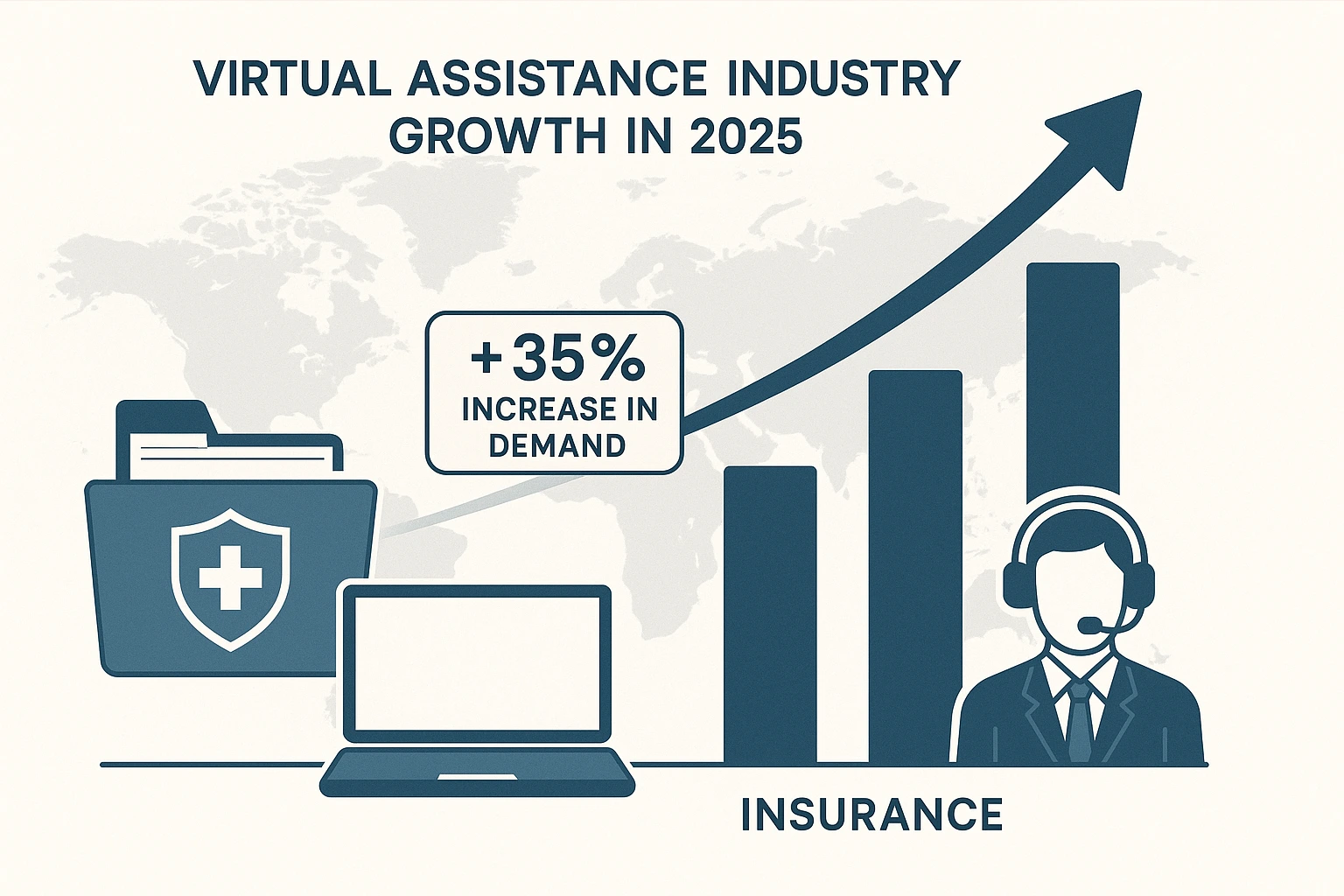Blog Details
The Rise of Virtual Assistants: Reshaping the Insurance Industry in 2025
The insurance industry digital transformation 2025 has reached a pivotal moment, with virtual assistants in insurance industry applications revolutionizing traditional business operations. As AI virtual assistants for insurance companies become increasingly sophisticated, they're reshaping how insurers interact with customers and manage internal processes.

Enhanced Customer Service Revolution
Insurance customer support virtual assistant technology is delivering 24/7 personalized service that surpasses traditional support models. Unlike basic AI chatbots vs virtual assistants in insurance comparisons, modern solutions provide complex problem-solving capabilities. How virtual assistants help insurance agents extends to managing client communications, scheduling appointments, and conducting preliminary policy assessments, allowing agents to focus on relationship building and sales.
Insurance customer support virtual assistant technology is delivering 24/7 personalized service that surpasses traditional support models. Unlike basic AI chatbots vs virtual assistants in insurance comparisons, modern solutions provide complex problem-solving capabilities. How virtual assistants help insurance agents extends to managing client communications, scheduling appointments, and conducting preliminary policy assessments, allowing agents to focus on relationship building and sales.
Operational Efficiency and Claims Processing
Insurance claims processing virtual assistant systems have revolutionized one of the industry's most complex workflows. These tools automatically review documentation, verify information, and process straightforward claims within hours instead of weeks. Virtual assistants for claims and underwriting are reducing operational bottlenecks while maintaining compliance standards.

Insurance automation with virtual assistants encompasses policy management, where insurance policy management virtual assistant solutions handle renewals, modifications, and regulatory compliance tracking. This comprehensive automation is essential for reducing insurance workload with AI assistants across all organizational levels.
Business Growth and Lead Generation
Insurance lead generation virtual assistant capabilities are transforming customer acquisition strategies. These systems analyze market data, identify prospects, and initiate personalized outreach campaigns. Virtual assistants for insurance brokers enable smaller agencies to manage larger client portfolios effectively, competing with major corporations through enhanced productivity.
Insurance agency productivity virtual assistant tools automate routine administrative tasks, allowing staff to concentrate on strategic initiatives and complex customer needs. This efficiency boost is particularly valuable for growing agencies seeking competitive advantages.
Cost Optimization and Financial Benefits
The benefits of virtual assistants in insurance are most evident in substantial cost reductions. Cost savings with insurance virtual assistants typically range from 30-50% in administrative expenses while improving service quality. Insurance back-office support outsourcing through virtual assistants eliminates expensive staffing requirements while maintaining operational excellence.
Technology Trends and Future Development
Top insurance virtual assistant tools 2025 incorporate advanced machine learning, natural language processing, and predictive analytics. Trends in insurance industry automation indicate expanding applications beyond current capabilities to include risk assessment and personalized product recommendations.
Industry-Wide Impact
How AI is changing insurance customer service represents broader transformation affecting every aspect of insurance operations. The role of virtual assistants in insurance growth has become central to competitive positioning, with companies leveraging these tools for customer retention and market expansion.
Best virtual assistants for insurance companies offer industry-specific features, regulatory compliance, and robust integration capabilities. As insurance industry outsourcing trends 2025 continue evolving, the impact of AI and virtual assistants on insurance promises continued innovation and operational excellence, positioning the future of insurance with virtual assistants as an industry standard rather than competitive advantage.




.png)





